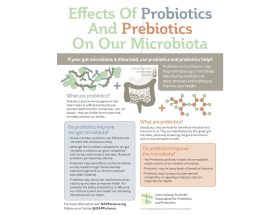Living with food allergies can be challenging, but it shouldn’t hinder you from enjoying safe and delicious meals. With the right knowledge and precautions in place, you can confidently navigate the world of culinary delights without compromising your health. This article aims to provide you with helpful tips and guidance on how to eat safely while still indulging in flavorsome cuisine.
1. Educate Yourself
The first step in managing food allergies is to educate yourself about the specific allergens affecting you. Understand what ingredients to avoid, the hidden sources of allergens in food products, and how to read food labels effectively. Familiarize yourself with common allergy-triggering substances such as peanuts, tree nuts, shellfish, dairy, gluten, and soy. This knowledge will empower you to make informed decisions and reduce the risk of accidental exposure.
2. Communicate Clearly
Whether you are dining out or eating at a friend’s house, clear communication is essential. Don’t hesitate to inform your server or the cook about your allergies and ask detailed questions about the food preparation process. Verify that cross-contamination can be avoided, and communicate your needs politely but assertively. When attending social gatherings, consider bringing your own dish to ensure there is a safe option available.
3. Cook at Home
Preparing meals at home gives you full control over the ingredients and cooking methods. Embrace the joy of cooking and experiment with allergy-friendly recipes. Focus on fresh, whole foods and avoid processed items as they may contain hidden allergens. Stock your pantry with safe ingredients and explore alternative cooking techniques and substitutions. There are numerous online resources, blogs, and cookbooks dedicated to delicious allergen-free recipes to inspire and guide you in the kitchen.
4. Plan Ahead
Before traveling or dining out, conduct thorough research in advance. Look for restaurants that accommodate food allergies and review their menus online. Some establishments have protocols in place to ensure safe dining experiences for allergic individuals. It’s also helpful to carry allergy medications, such as antihistamines or an epinephrine auto-injector, if necessary. By preparing ahead, you can minimize risks and enjoy your meals worry-free.
5. Seek Support
Living with food allergies can feel isolating, but you are not alone. Reach out to support groups or online communities where you can connect with others who share similar experiences. They can provide a wealth of knowledge, helpful tips, and emotional support. Additionally, consider consulting an allergist or a registered dietitian specializing in food allergies. They can provide personalized advice tailored to your specific needs and help you maintain a nutritious and well-balanced diet.
Conclusion
Navigating food allergies may require extra effort and attention, but it should never hinder your ability to savor delicious meals. By educating yourself, communicating effectively, cooking at home, planning ahead, and seeking support, you can confidently enjoy a flavorful and safe eating experience. Remember, with the right precautions and a positive mindset, food allergies won’t limit your culinary adventures.






